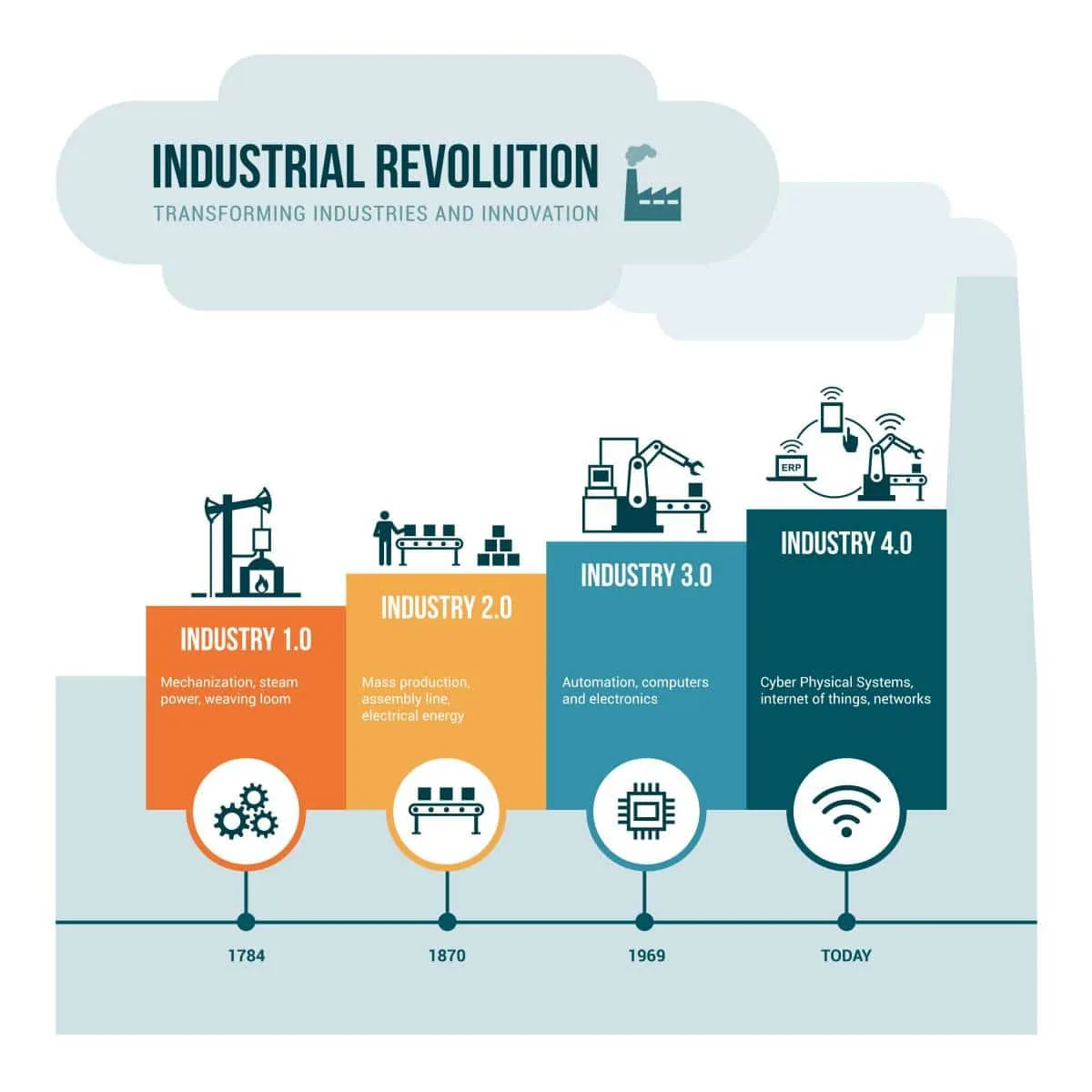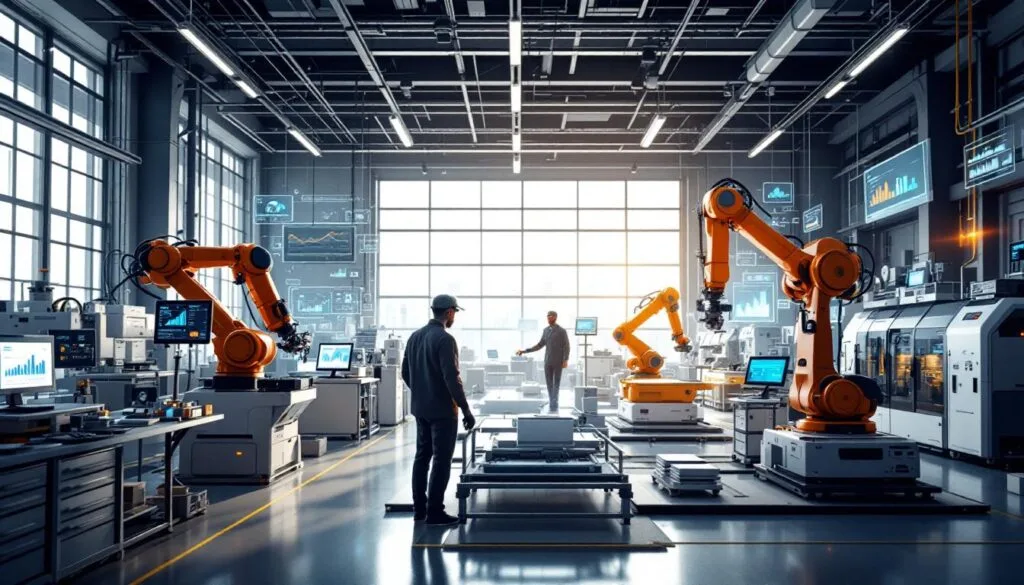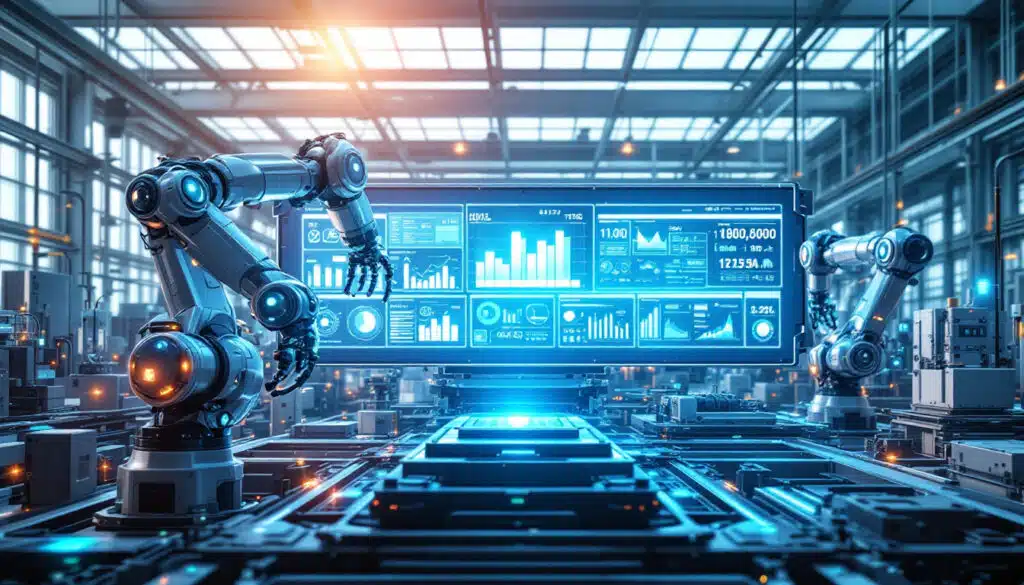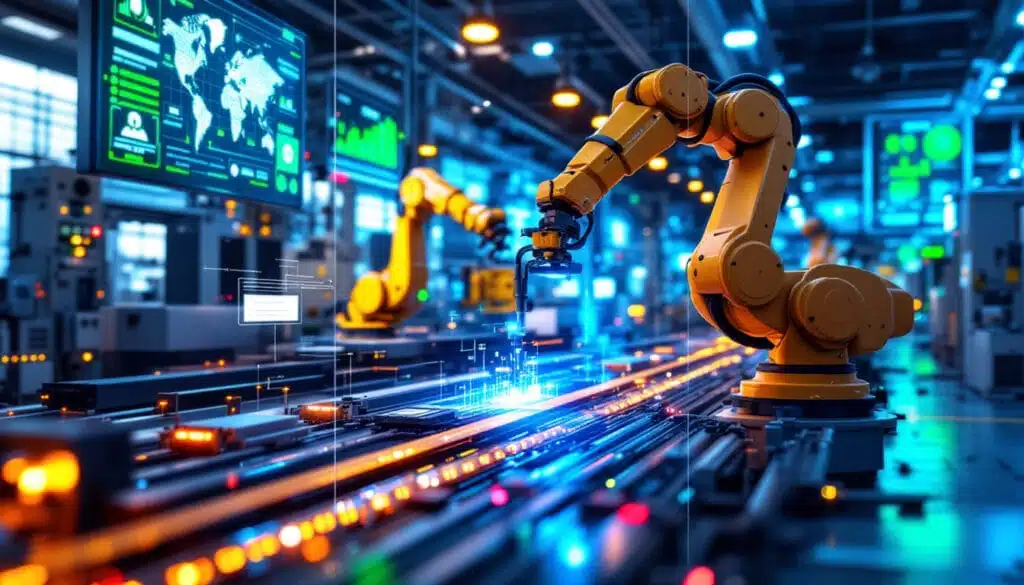
The Industrial Internet of Things (IIoT) is revolutionizing manufacturing and production processes by connecting machines, devices, and sensors through the Internet. With the advent of Industry 4.0, this technology enables enhanced monitoring and optimization of industrial processes. According to forecasts, the global IIoT platform market is expected to grow from 6 billion USD in 2020 to 13.7 billion USD in 2026, addressing a growing need for efficiency and productivity.
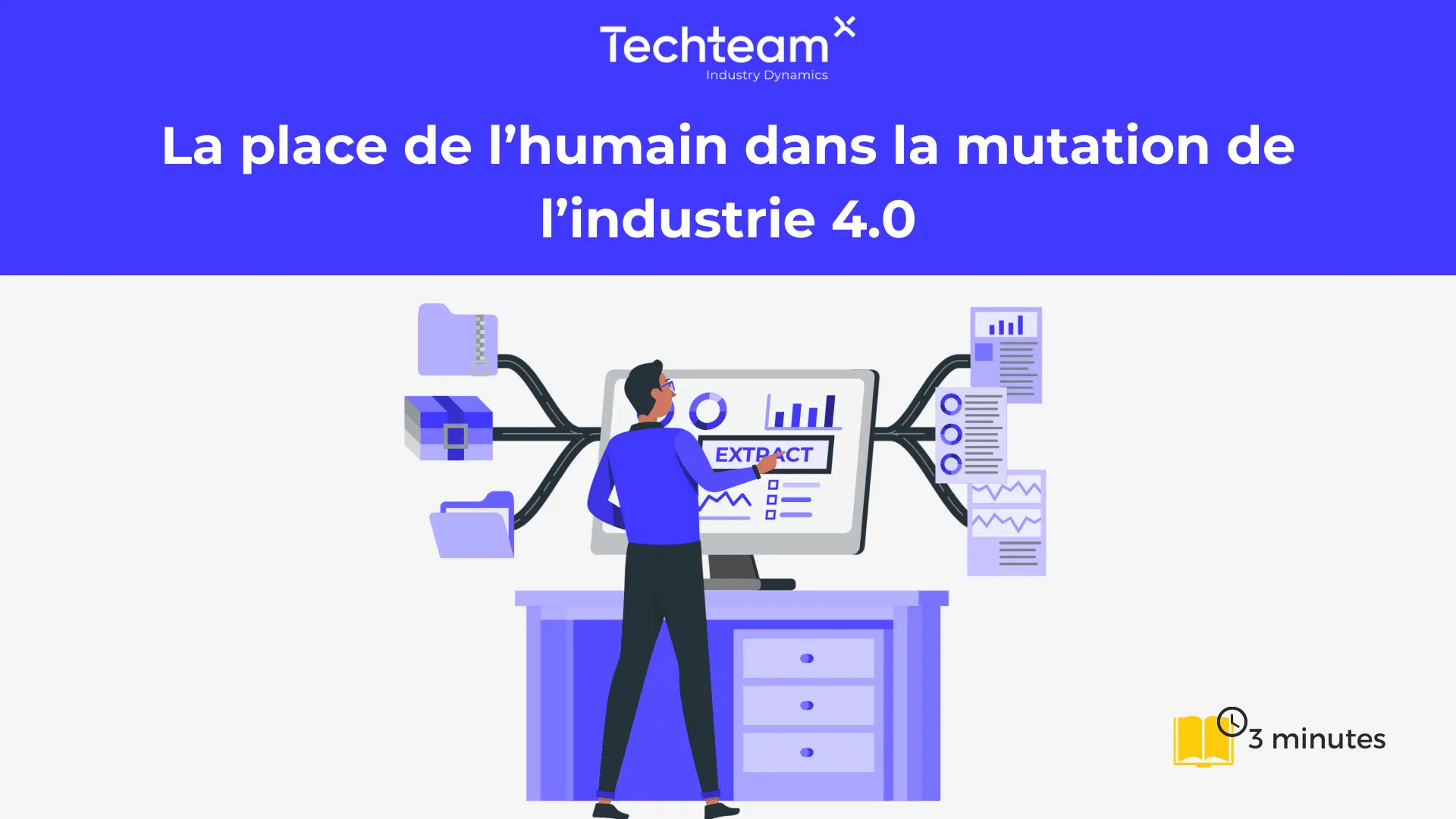
The Industrial Internet of Things (IIoT) is rapidly expanding due to the development of Industry 4.0. This article explores the growth forecasts for the IIoT market, the technologies and applications involved, as well as the key areas where manufacturers are benefiting. By connecting machines, devices, and sensors through the Internet, the IIoT is transforming industrial production, enhancing both efficiency and safety.
Table des matières
ToggleIIoT: A Catalyst for Transformation in Industry
The concept of IIoT is based on integrating cutting-edge technologies into the industrial sector. This involves using connected machines, smart devices, and sensors to collect and analyze data in real-time. This interconnectivity facilitates optimized management of production processes, allowing companies to make informed decisions and respond quickly to production changes.
Growth Predictions for the IIoT Market
The size of the global IIoT platform market is expected to grow from 6.0 billion USD in 2020 to 13.7 billion USD in 2026, with an impressive annual growth rate. This development is driven by the increasing adoption of digitalization and automation across industries, which are the main engines of Industry 4.0. Companies are heavily investing in these technologies to remain competitive and innovative.
Applications of IIoT
IIoT extends across various industrial sectors, such as manufacturing, energy, transportation, and healthcare. For example, in manufacturing, programming control computers and interconnecting machines increase productivity and reduce downtime. In energy, smart sensors monitor pipelines and infrastructure to prevent failures and enhance efficiency.
Industry 4.0 and Security
With the rise of IIoT, the issue of security becomes critical. Connecting various industrial devices and systems to the Internet exposes them to cybersecurity risks. Therefore, it is crucial to implement robust security strategies to protect sensitive data and ensure the smooth operation of industrial infrastructures. Companies are adopting encryption technologies, enhanced security protocols, and identity management policies to secure their IIoT environments.
IIoT in the Future of Industry
The adoption of IIoT is not merely a trend, but an essential evolution to meet contemporary industrialization challenges. By facilitating data collection and analysis, improving process efficiency, and enhancing security, IIoT embodies the future of industry. Ongoing advancements in sensor technologies, artificial intelligence, and connectivity promise new opportunities for industries worldwide.
- Global IIoT platform market: From 6.0 billion USD in 2020 to 13.7 billion USD in 2026
- Key role in Industry 4.0: Connecting machines and objects to the Internet to optimize processes
- IDC estimate for 2025: 55.7 billion IoT devices
- Productivity boom: Through control computer programming
- Growing need for optimization: Adoption of IIoT to keep pace
- Technologies used: Connected machines, devices, and sensors
Advantech lance ses nouveaux capteurs EVA-2000 sans fil équipés de la technologie #LoRaWAN pour une surveillance précise de l’environnement.
— Advantech IIoT Europe (@Advantech_IIoT) July 3, 2024
📘 Lisez ce communiqué de presse en Francais! 🇫🇷
👉 https://t.co/jUvZgX7lA6#capteurs #technologie #environnement

